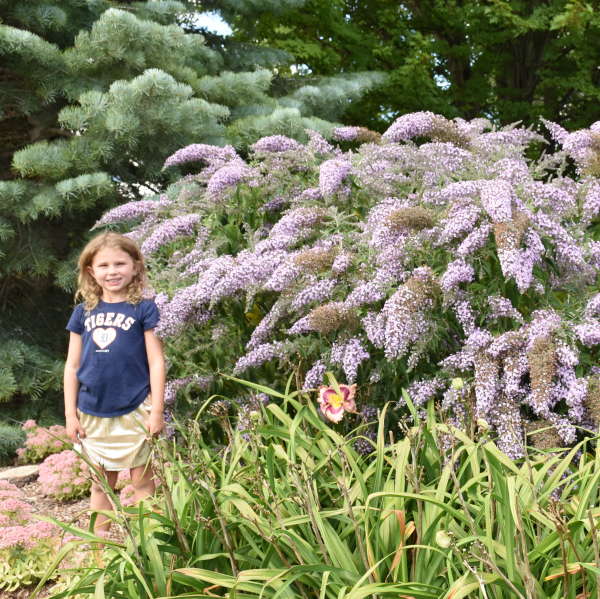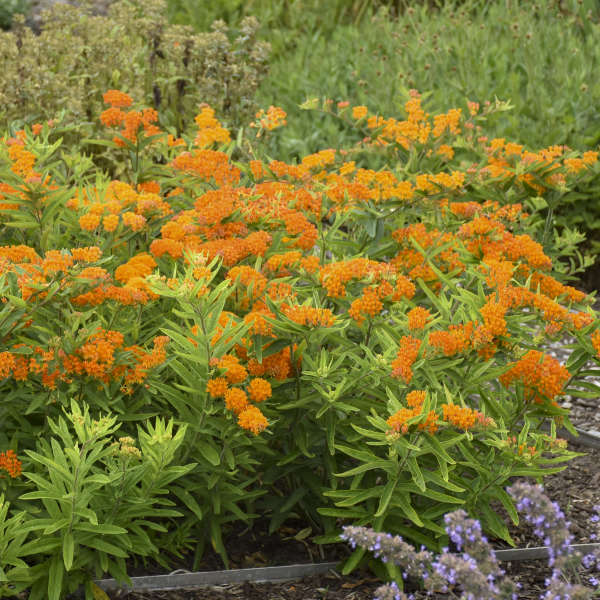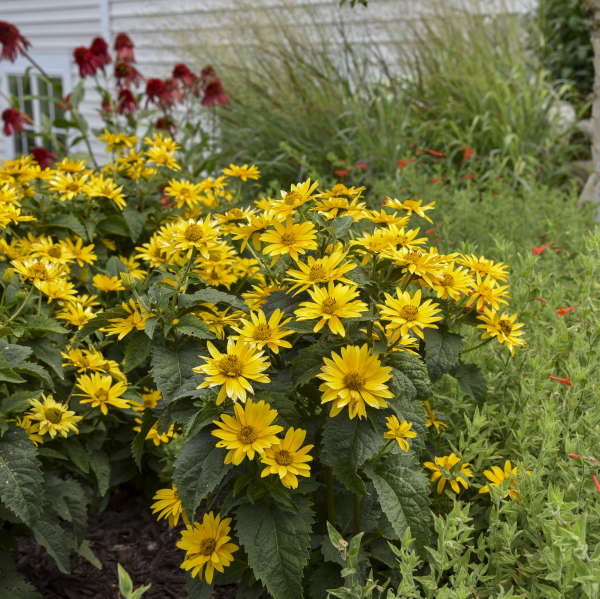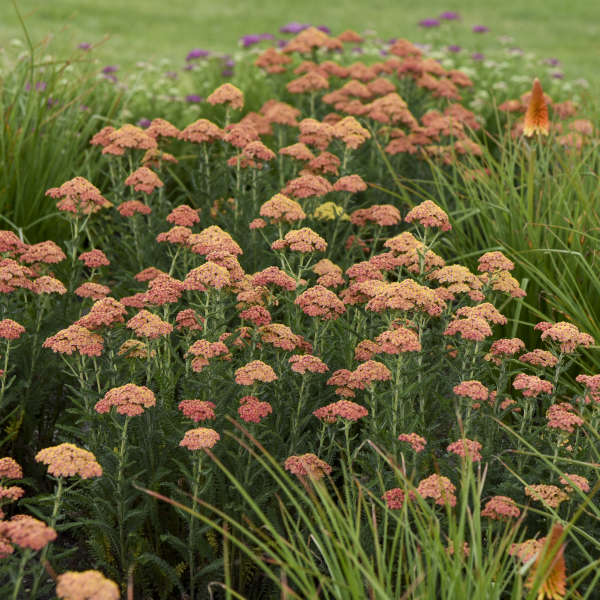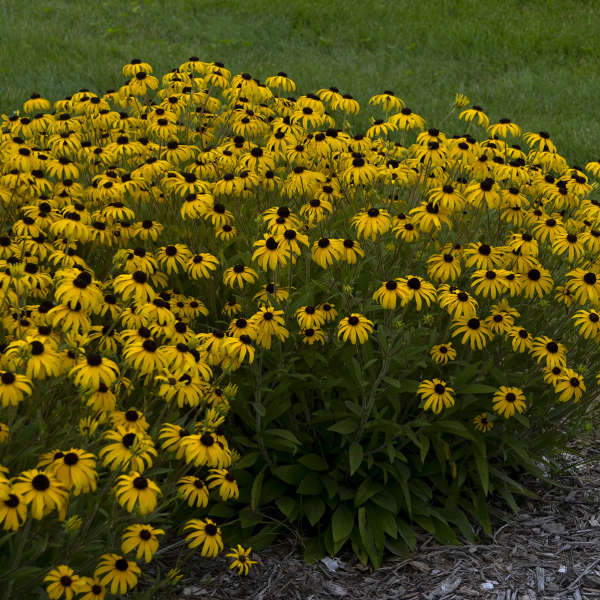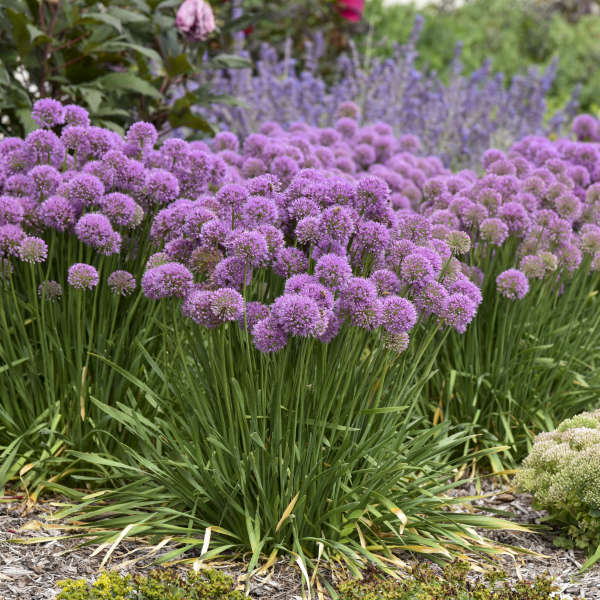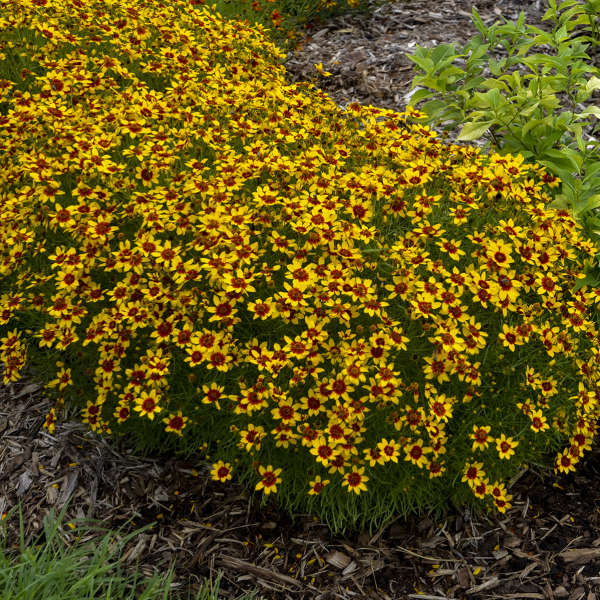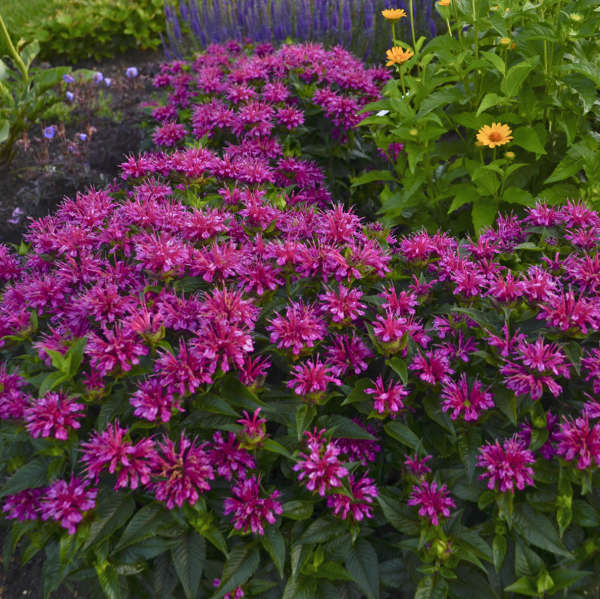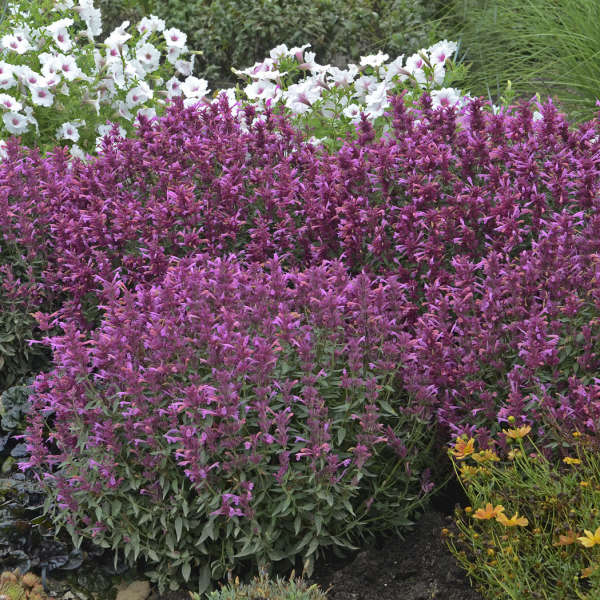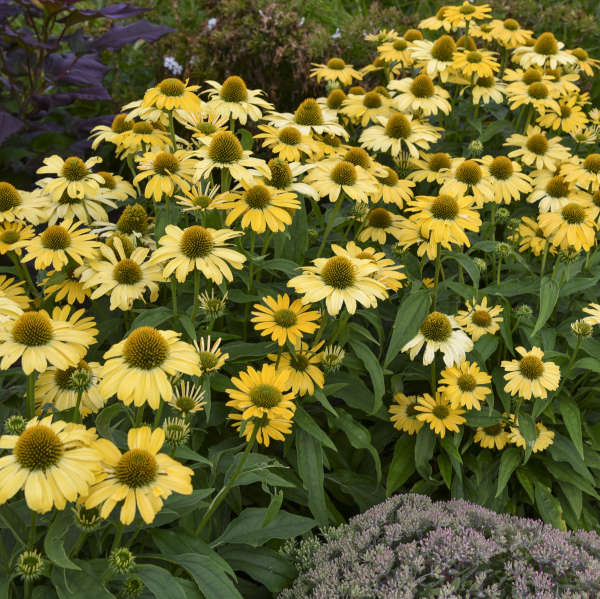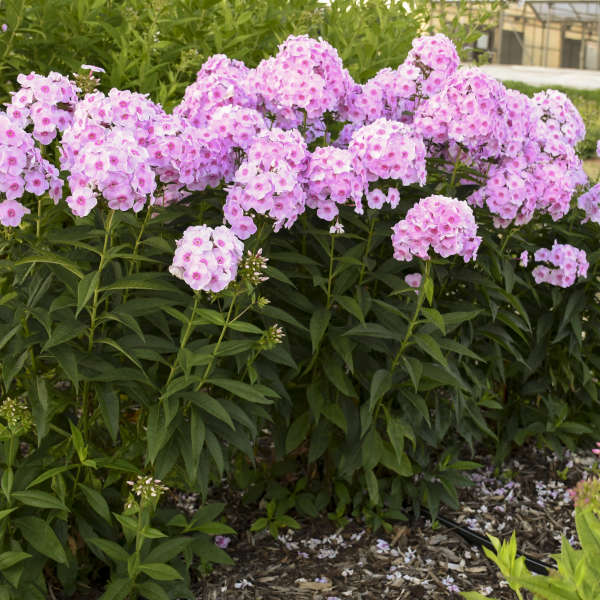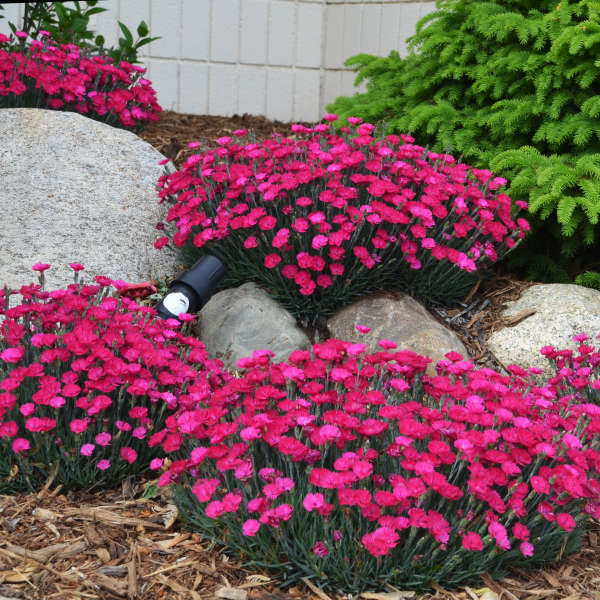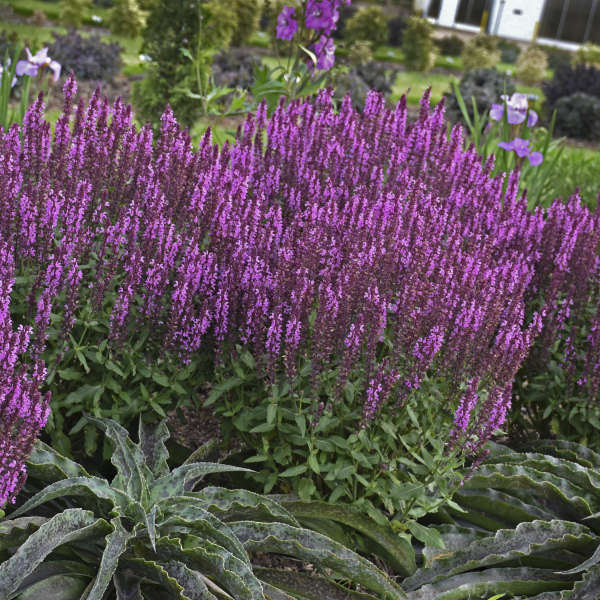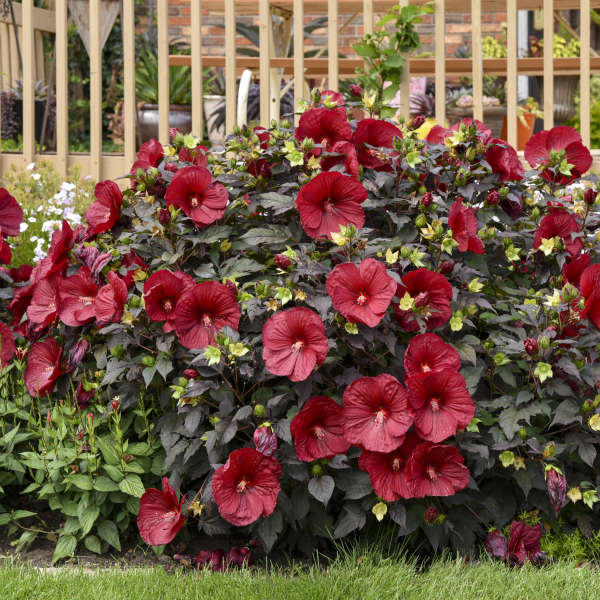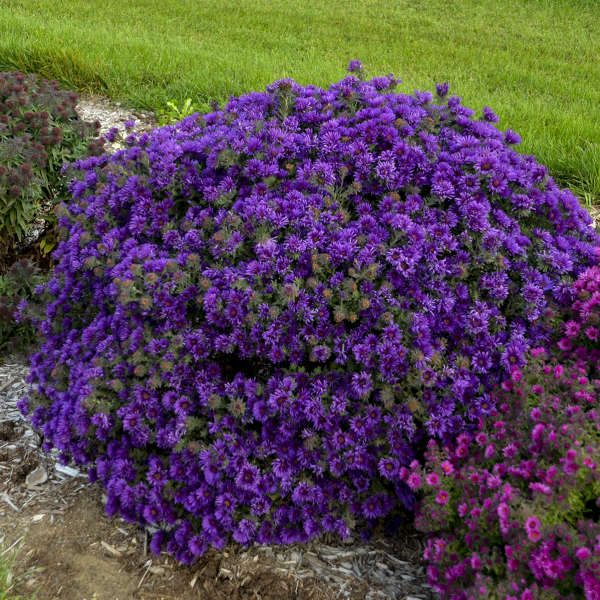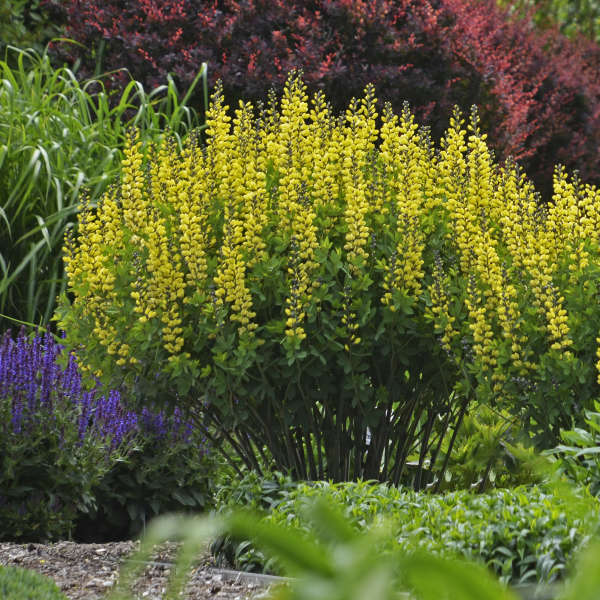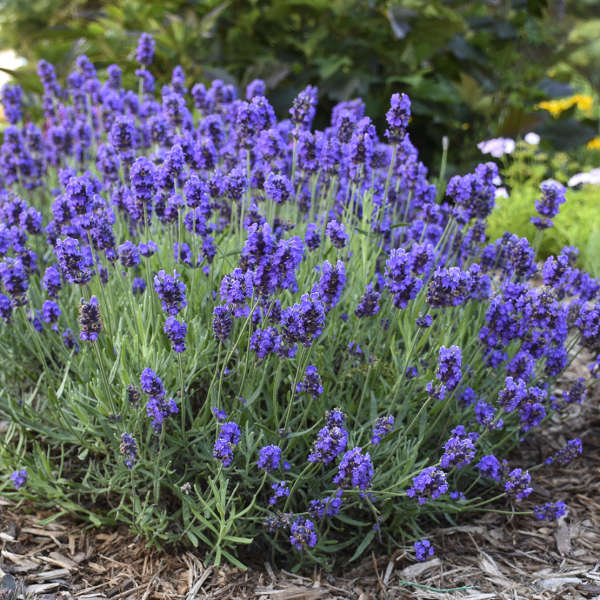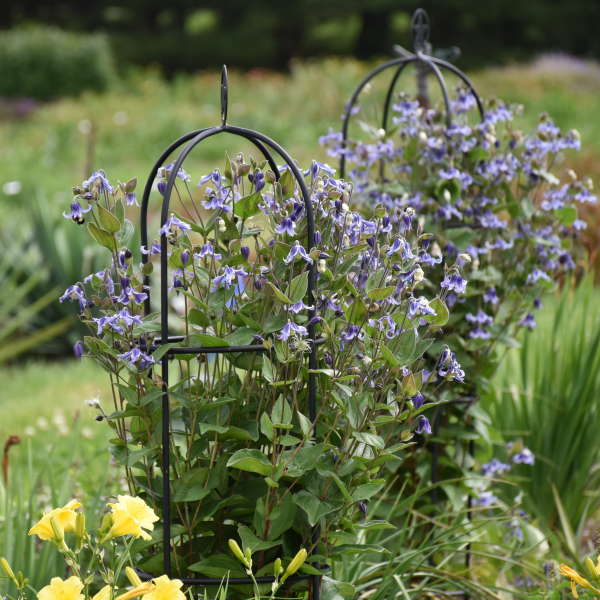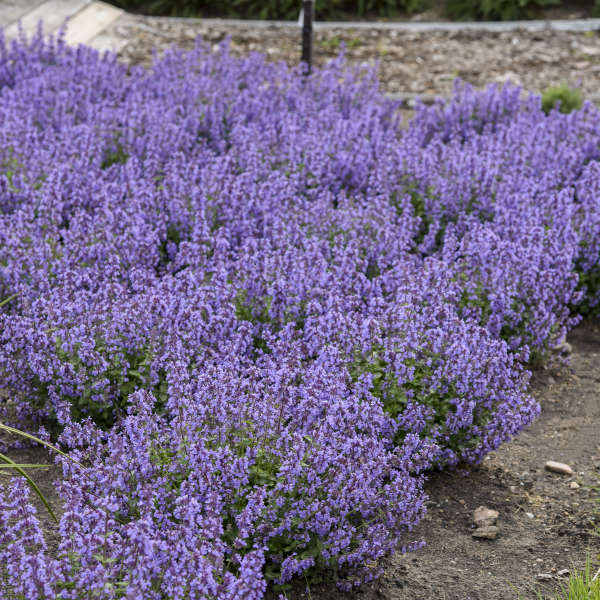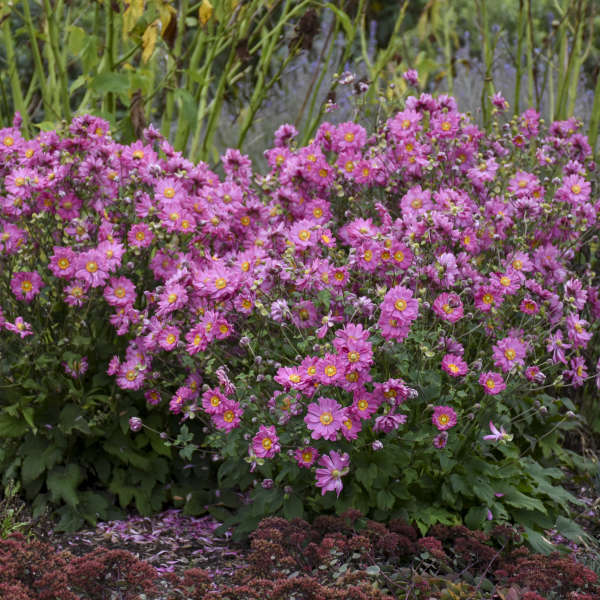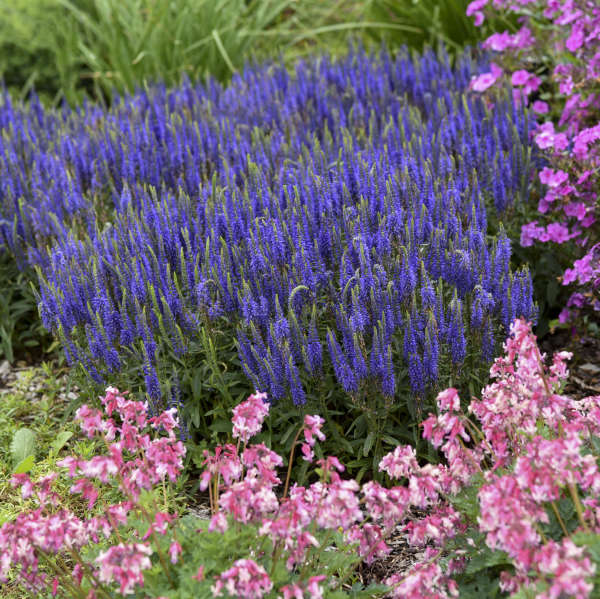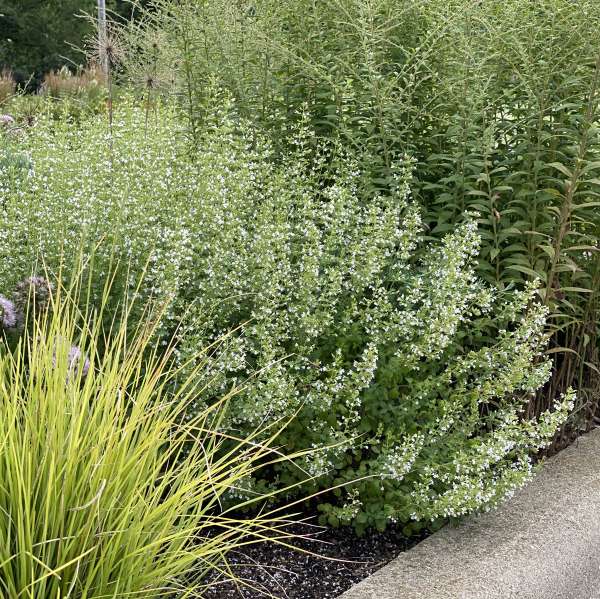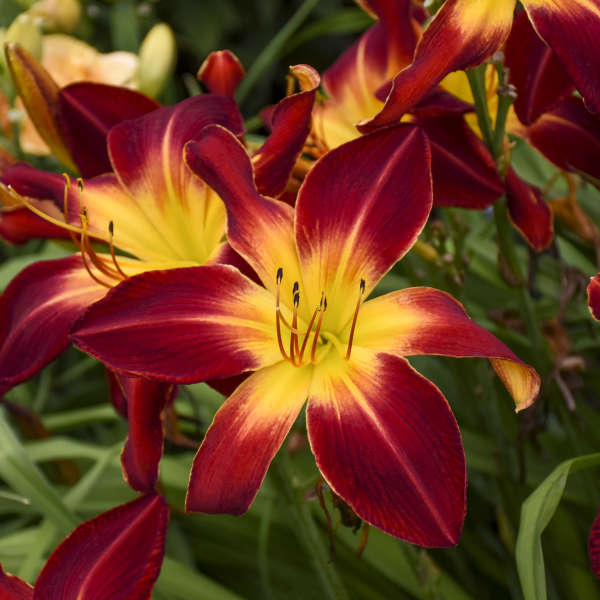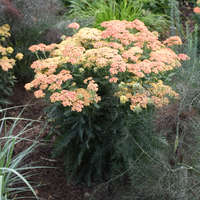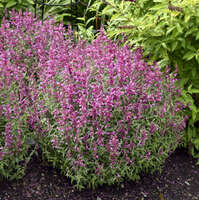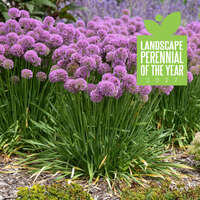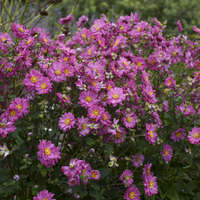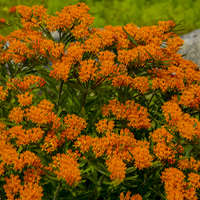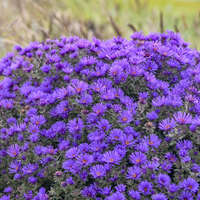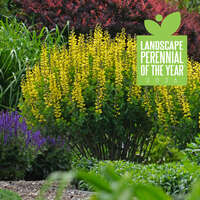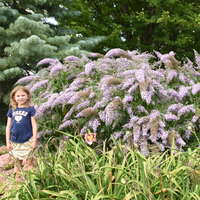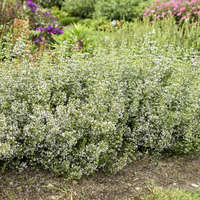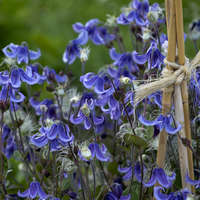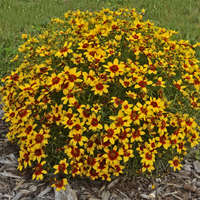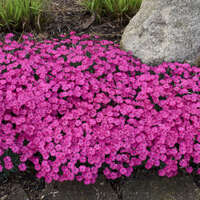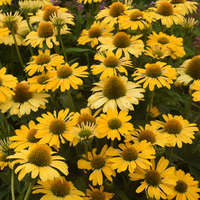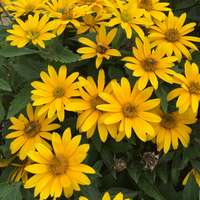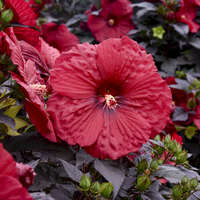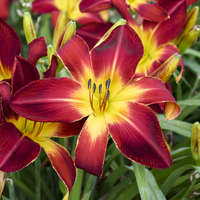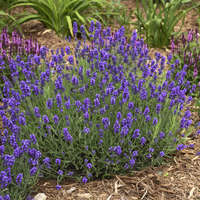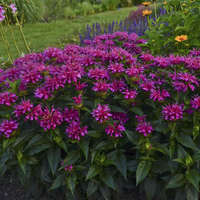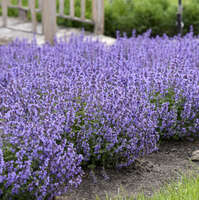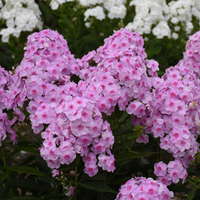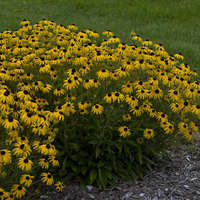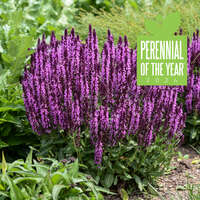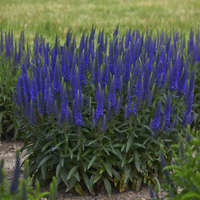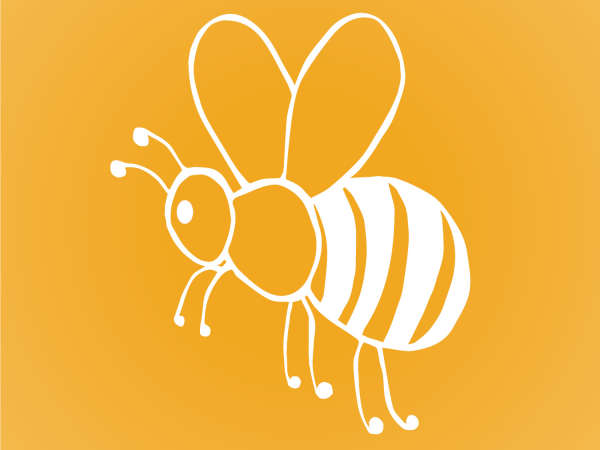Perennials Butterflies Love
1 of 24
Colors to Attract Butterflies
Butterflies love red, purple, orange, yellow, and pink flowers. Have plenty of these in your yard if you want to draw in butterflies!
2 of 24
Buddleia (Butterfly Bush)
Butterfly Bushes have certainly earned their place in the garden over the years, and its easy to see why. Just when we need a breath of fresh air in the late summer heat, they happily burst into bloom. At a time when many other plants are already spent, buddleias are just beginning their show. Their passive coloring and texture makes a wonderful backdrop for perennials, and you'll love the butterflies, bees, and hummingbirds that flock to their honey-scented blossoms.
Variety Pictured: Buddleia 'Grand Cascade'
Height: 5½-6' | Zones: 5-10 | Full Sun
Learn More
3 of 24
Asclepias (Butterfly Plant)
A virtually hassle-free, very long lived perennial, offering three months of tangerine orange blooms (occasionally red or yellow) from early through late summer. Deadheading the flowers will stimulate another bloom cycle about a month after the first one. The flowers, which are heavily laden with nectar and pollen, are particularly attractive to hummingbirds, Monarch butterflies, bees, and other beneficial insects.
Variety Pictured: Asclepias tuberosa
Height: 24" | Zones: 3-9 | Full Sun
Learn More4 of 24
Heliopsis (False Sunflower)
Heliopsis have traditionally been an excellent tall perennial for the middle or back of the flower border. It has a bushy, well-branched form and glossy, deep green, triangular leaves - a real workhorse in the garden! Use this plant in combination containers, as a cut flower, or to attract butterflies to your garden.
Variety Pictured: Heliopsis helianthoides Tuscan Gold™
Height: 24-32" | Zones: 3-9 | Full to Part Sun
Learn More
5 of 24
Achillea (Yarrow)
Yarrow is one of the easiest perennials to grow and is a good choice for beginners. All it needs is full sun and well-drained soil. These plants are an excellent balance of finely textured foliage and bright flower colors. The wide, flat flower clusters are popular landing pads with pollinators.
Variety Pictured: Achillea 'Firefly Peach Sky'
Height: 32-36" | Zones: 3-8 | Full Sun
Learn More

6 of 24
Rudbeckia (Black-Eyed Susan)
Rudbeckias like full sun, but they also will do well in partial shade. Plant them in well-drained, not overly rich soil. Remove spent flowers in order to stimulate continuous bloom.
Variety Pictured: Rudbeckia 'American Gold Rush'
Height: 22-26" | Zones: 4-9 | Full to Part Sun
Learn More7 of 24
Allium (Ornamental Onion)
Alliums are charming plants for the rock or herb garden. When the foliage is bruised, it smells like onions since they are in the onion family. Butterflies and honeybees adore the flowers' sweet nectar but deer and rabbits steer clear of this perennial beauty.
Variety Pictured: Allium 'Serendipity'
Height: 15-20" | Zones: 4-8 | Full to Part Sun
Learn More

8 of 24
Coreopsis (Tickseed)
Coreopsis is easy to grow, making it a good choice for beginners. One plant will provide you with long-lasting cut flower bouquets all summer long.
Variety Pictured: Coreopsis verticillata SIZZLE & SPICE® 'Curry Up'
Height: 15-18" | Zones: 5-9 | Full Sun
Learn More
9 of 24
Monarda (Bee Balm)
Monarda is native to eastern North America, so it is easy to grow and it multiplies quickly. The flowers' sweet nectar attracts scores of hummingbirds, butterflies, and bees to the garden. The aromatic foliage smells like mint when crushed and is often used to flavor teas.
Variety Pictured: Monarda didyma 'Pardon My Purple'
Height: 14-18" | Zones: 4-8 | Full to Part Sun
Learn More

10 of 24
Agastache (Anise Hyssop)
Agastache are well-adapted to thrive in dry soils and is right at home in rock gardens and xeric container plantings where it will attract hummingbirds, butterflies, and honeybees. This is one of the easiest perennials to grow.
Variety Pictured: Agastache 'Rosie Posie'
Height: 18-22" | Zones: 6-9 | Full Sun
Learn More
11 of 24
Echinacea (Coneflower)
Praised for their cheerful brightly colored flowers, coneflowers are a mainstay in today's garden. Be sure to leave some spent blooms on the plants in the fall because their seeds provide winter food for finches and other birds. The dried seed heads also provide architectural interest in the winter.
Variety Pictured: Echinacea COLOR CODED® 'Yellow My Darling'
Height: 18-24" | Zones: 4-8 | Full to Part Sun
Learn More

12 of 24
Phlox paniculata (Tall Garden Phlox)
These perennials are a favorite of gardeners around the world and a staple of North American native gardens. Be sure to locate these plants in full sun for the best flowering performance and to help avoid powdery mildew concerns. A favorite of pollinators.
Variety Pictured: Phlox paniculata LUMINARY™ 'Opalescence'
Height: 30-32" | Zones: 3-8 | Full Sun
Learn More

13 of 24
Dianthus (Pinks)
In the carnation family, Dianthus cultivars deliver gorgeous single, semi-double, and fully double flowers. Singles tend to deliver more flowers while doubles are significantly larger, sometimes more than twice the size. Singles also tend to grow quicker and can appear like a carpet in the landscape at maturity.
Variety Pictured: Dianthus 'Paint the Town Magenta'
Height: 6-8" | Zones: 4-9 | Full to Part Sun
Learn More

14 of 24
Salvia (Perennial Salvia, Garden Sage)
Salvia is a staple item for every sunny garden. It asks little more than sunshine and a little drink every once in a while in return for producing a bountiful mass of colorful flower spires from late spring into early summer. It forms a uniform, rounded clump of aromatic, rugose green foliage that looks nice all season long and is not enjoyed by rabbits or deer.
Variety Pictured: Salvia nemorosa 'Pink Profusion'
Height: 14-16" | Zones: 3-8 | Full Sun
Learn More

15 of 24
Hibiscus (Rose Mallow)
These North American native plants bring massive, tropical-looking flowers all the way to zone 4. Although later to emerge than most perennials in spring, these are fast growing plants capable of adding an inch of new growth a day. Excellent at brightening up end of season gardens.
Variety Pictured: Hibiscus SUMMERIFIC® 'Holy Grail'
Height: 4-4½' | Zones: 4-9 | Full to Part Sun
Learn More

16 of 24
Aster (New England Aster)
Asters perform best in rich, evenly moist soil and full sun. Give them lots of room to grow; good air circulation will help to prevent powdery mildew. Though this cultivar has a bushy, compact habit, it may still require staking. To promote dense growth that is less likely to flop, pinch plants back from late spring until July 4th.
Variety Pictured: Aster 'Grape Crush'
Height: 26-30" | Zones: 26-30" | Full Sun
Learn More
17 of 24
Baptisia (False Indigo)
Baptisia is easy to grow and will thrive with little maintenance. There are many potential applications in the landscape including meadow plantings, as a backdrop in borders, or as a specimen. Plants are very long-lived once established.
Variety Pictured: Baptisia DECADENCE® 'Lemon Meringue'
Height: 3' | Zones: 4-9 | Full to Part Sun
Learn More

18 of 24
Lavandula (Lavender)
Gardeners around the world have been growing lavender for centuries for its intensely fragrant flowers, beautiful appearance, and ease of culture.
Variety Pictured: Lavandula angustifolia Sweet Romance®
Height: 12-18" | Zones: 5-9 | Full Sun
Learn More
19 of 24
Clematis (Bush Clematis)
This non-vining Clematis is completely herbaceous, meaning that it dies back to the ground at the end of the growing season. Flowers appear from late May to June, with some rebloom into the later summer months. After it is finished blooming, attractive cream thread-like seed heads appear.
Variety Pictured: Clematis 'Stand By Me'
Height: 42" | Zones: 3-7 | Full to Part Sun
Learn More

20 of 24
Nepeta (Catmint)
When Nepeta's stems are broken, they release an aroma into the air that tends to attract cats, thus its common name, Catmint.
Variety Pictured: Nepeta 'Cat's Pajamas'
Height: 12-14" | Zones: 3-8 | Full Sun
Learn More

21 of 24
Anemone (Japanese Anemone)
A staple item for late summer and fall borders, Japanese Anenomes are graceful plants with beautiful, satiny flowers borne on tall stems above a clump of shorter basal foliage. Watching them sway in the breeze brings a feeling of calm and peace to the garden. Since they are a bit late to rise in the spring, they make an ideal cover for the dying foliage of spring bulbs.
Variety Pictured: Anemone FALL IN LOVE™ 'Sweetly'
Height: 20-26" | Zones: 4-8 | Full to Part Sun
Learn More

22 of 24
Veronica (Spike Speedwell)
Veronica is highly valued for its ease of growth and long bloom time. The spiky flowers are an excellent contrast to the more common rounded flower shapes like Shasta Daisies, Coneflower, and Black Eyed Susans. Expect bees to be buzzing about this plant when in bloom.
Variety Pictured: Veronica MAGIC SHOW® 'Wizard of Ahhs'
Height: 14-16" | Zones: 4-8 | Full to Part Sun
Learn More

23 of 24
Calamintha (Calamint, Lesser Catmint)
This sun-loving perennial is the perfect choice for attracting pollinators, since it blooms from early summer until frost. Tiny, white flowers cover the bushy habit. Since this is in the mint family, the leaves carry a mint scent. Perfect for rock garden enthusiasts and herb gardens. Use in the landscape as you would Nepeta (Catmint).
Variety Pictured: Calamintha nepeta ssp. nepeta
Height: 12-16" | Zones: 5-9 | Full Sun
Learn More24 of 24
Hemerocallis (Daylily)
Daylilies can survive many harsh conditions that other plants cannot including: polluted city environments, slopes, poor and dry soils, near pavement that is salted in winter, and under Black Walnut trees (not affected by juglone).
Variety Pictured: Hemerocallis RAINBOW RHYTHM® 'Ruby Spider'
Height: 34" | Zones: 3-9 | Full to Part Sun
Learn More


